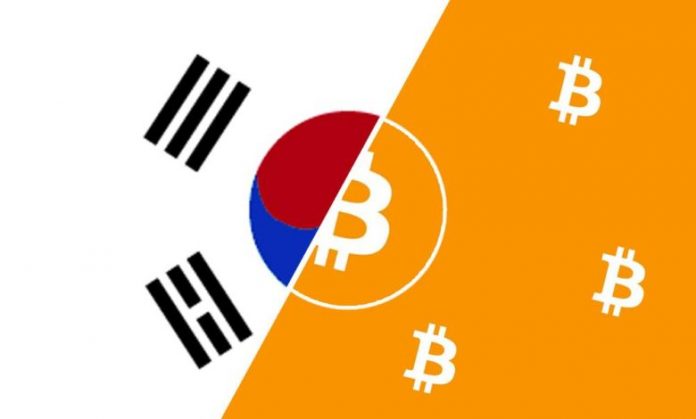
The ‘F’ Word
Nightclubs often utilize an interesting business model. Many of the nightclubs in South Korea, for example, rely on VIP table renters and bottle purchasers to keep themselves above water. Entrance fee is charged as a mere barrier to entry to the super-cheap that the young see as the price for fun without factoring in the additional costs of the festivities inside. It is as youths are. The amount of liquor a club needs to sell to stay above water nightly, however, can be staggering.
Not every patron of a nightclub buys a bottle in part due to the dizzying premium the establishments put on the bottles and in part due to the fact that some people would like to forego the alcohol in order to just dance. Therefore, after a nightclub is no longer the hot new place, it becomes difficult for the owners to stay in business with their same old tricks.
This is where money laundering comes into play. Money laundering is where money that is earned through illicit means, such as through the drug trade, becomes legitimate income. A case from 2015 in the USA illustrates how this might work for a nightclub. The Mexican Cartel purchased a nightclub and made millions of dollars in purchases with their illicit drug money. They injected cash into the club’s revenue daily to both boost the sales receipts of the club and to make their money easy to withdraw.
More than 500 people checked in to the club via social media while the Cartel owned it which made it seem as if there were real sales being made. Sales were up, albeit a larger portion in cash, and the place seemed quite popular. To a layperson, it would seem that the nightclub was a hot place to visit. The club’s bank started to notice suspicious regular cash deposits that were designed to evade cash-deposit limits which triggered a red flag. Eventually, the authorities caught on to the scheme and shut down the nightclub.
In the same fashion with the nightclub in the USA, exchanges didn’t appear to have any trouble at all onboarding traders and growing their liquidity and trade volume since those metrics along with coin prices were at ever-increasing ATH. The Korean market itself accounted for more than 30% of average global trade volume with that percentage being far higher on a few select coins.
When the bubble burst after the shockwave caused by the Korean government’s bombshell decision to start regulating crypto trading, one would expect the trading volume to retract in some reasonable proportion. Through 2018, however, trading volume on Korean exchange remained relatively high, certainly higher than the global average. That isn’t to say that trading volume was still in the millions of transactions per day as it was through the end of 2017, it was still significantly down, but not down enough to match what would be expected when Korea’s closed ecosystem was effectively temporarily shut down.
In the time through 2018, reports and accusations of wash trading and fraud grew in number from several of the country’s largest exchanges. Couple that with suspicious hacks of millions of dollars at several other exchanges and it became apparent that there was something seriously wrong with the cryptocurrency investment market in South Korea. That specific problem was fraud and wash trading as noted by the Blockchain Transparency Institute (BTI) when they reported in late 2018 that, “…Over 80% of the CMC top 25 BTC pairs volume is wash traded. These exchanges continue to use these strategies as a business model to steal money from aspiring token projects.” The observation notes that there were problems across the entire cryptocurrency trading world, not just Korea as they further revealed that over 50 exchanges were wash trading 95% of their volumes.
The majority of Bithumb’s trade volume on some popular coins was found to be wash traded in order to keep appearances up. The Blockchain Transparency Institute took notice of the unusual volumes on the exchange and stated that a large amount of wash trading on Dash, Bitcoin Gold, Monero, and ZCash was found on the platform. The latter two coins are privacy coins whose transactions cannot be tracked when transferred off of a centralized platform, making them ideal for money launderers.
Spot traders noticed the unusual trade activity on Bithumb with those privacy coins especially. In interviews, subjects commonly observed that volume would all but diminish to zero on those trading pairs during the Korean nighttime hours only to resume to the same level around mid-morning.
Upbit came under the scrutiny of law enforcement several times through 2018 for separate charges of fraud. They were raided by police and executives were sent to the central courthouse for questioning about various schemes. The first instance came in mid-2018 when authorities performed search and seizure on pertinent documents at Upbit headquarters. Upbit came under charges of fraud then for allegedly transferring funds from customer accounts to a separate account thought to belong to an executive at Upbit. The exchange was acquitted of those charges and made no genuine apology to the effect.
Later in the same year, they were accused and later acquitted of unlawfully using bots to manipulate trading volumes on certain trading pairs on their platform to inflate the amount of real transactions being executed. This bot scheme is basically the same thing that Bithumb and dozens of other exchanges in Korea and hundreds worldwide used then and still use through 2020 in order to create pumps and FOMO. In the case of Upbit, however, authorities alleged that the scheme took place for two months in late 2017 of all times. It raised questions about why a Korean exchange would need to fabricate transactions at all in the midst of the largest bull-run ever to-date.
Later Upbit admitted to using bots in order to manipulate trade volume. Their defense was that they needed to manipulate the volume in order to protect investors from token values from crashing due to a complete lack of volume. In their statement, Upbit claimed that the amount of fraudulent transactions and any other allegations against them were “[misunderstandings]” which would be cleared up in their time in court. The way Koreans use the word ‘misunderstanding’ in Korean and English are similar in the sense that they believe it is a catch-all term meant to admit guilt, excuse responsibility, and force other parties to move on all at the same time.
One tends to believe that where there is smoke, there is fire. Upbit curiously escaped a day to stand before a jury to have judgment laid on them. The executives of Komid, an abysmal, tiny Korean exchange did not escape that fate. They are still in prison in 2020 for their parts in a scheme to fabricate trade volume on their exchange in order to attract more investors. They should have said it was a misunderstanding. More recently, executives from Upbit and its parent company, Dunamu, have had to explain to superior Korean Courts that their case is different from Komid’s because Komid used fake money to defraud users – Upbit used their own assets to defraud users. That case will soon reach Korea’s Supreme Court.
The apparent solution to these problems was government regulations which protected people from both scammers and themselves in any other investment category thinkable. With those regulations inevitably would come taxation which many with poor hindsight and even poorer foresight decried as unnecessary. They didn’t realize then that they paid more for the hacks on their favorite trading platforms than they would if they paid taxes for government protections in the first place. The next step was getting the Korean government to make up their mind about how they planned on regulating the exchanges running amok around the country.
We can see that 2018 would turn out to be a dark time for crypto traders ironically due to the light shed on the underpinnings of the industry after the massive bubble burst. One interviewee for candidly recalled 2018 as the worst year of his life. He revealed something of a vivid moment of clarity he felt while standing on a street corner looking at his account balances in dollar value. Bearing in mind that each time an exchange got hacked, the price of cryptos fell more sharply, one cannot excuse the instances of hacks, fraud, and other malfeasance as isolated instances.
No cries of foul could be heard over the frenzied profit takers in 2017. That vocal minority of profit takers would largely retreat into comfort, leaving the vast disgruntled masses asking how and why their position was so insignificant.
Brian Newar(2020.12.15) Crypto of Korea: Exchanges
retrieved from https://thenews.asia/crypto-of-korea-exchanges/




![[November]Uptober No More](https://coinhubkorea.com/wp-content/uploads/2025/10/Whisk_d78880efb01a730907f4be201effefe1dr-1-100x70.jpeg)

